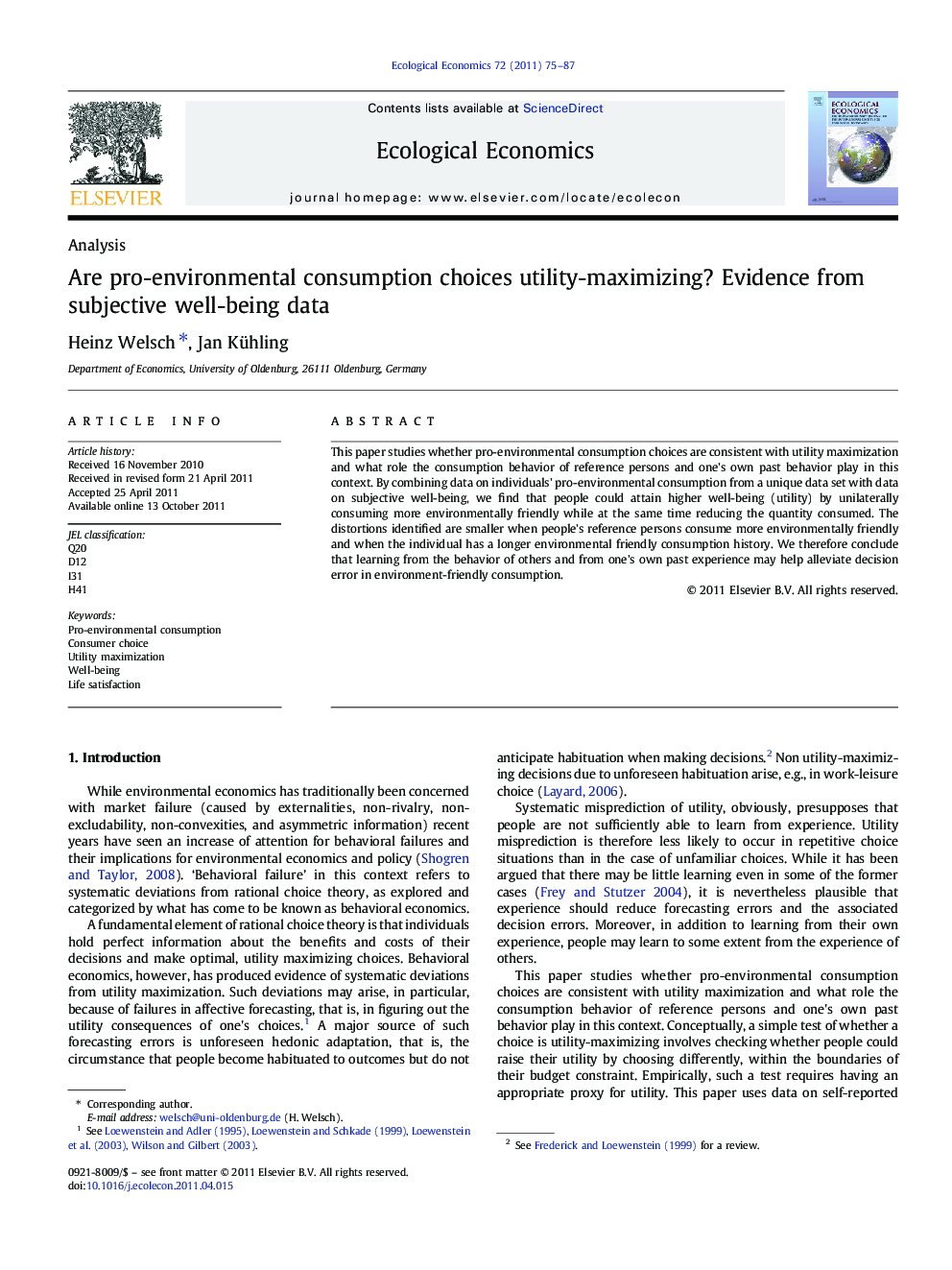| Article ID | Journal | Published Year | Pages | File Type |
|---|---|---|---|---|
| 5050466 | Ecological Economics | 2011 | 13 Pages |
This paper studies whether pro-environmental consumption choices are consistent with utility maximization and what role the consumption behavior of reference persons and one's own past behavior play in this context. By combining data on individuals' pro-environmental consumption from a unique data set with data on subjective well-being, we find that people could attain higher well-being (utility) by unilaterally consuming more environmentally friendly while at the same time reducing the quantity consumed. The distortions identified are smaller when people's reference persons consume more environmentally friendly and when the individual has a longer environmental friendly consumption history. We therefore conclude that learning from the behavior of others and from one's own past experience may help alleviate decision error in environment-friendly consumption.
Research Highlights⺠We study whether pro-environmental consumption is consistent with utility maximization. ⺠We focus on the role of learning from reference persons and one's own past behavior. ⺠We find that people could attain higher well-being (utility) by unilaterally consuming more environmentally friendly. ⺠Deviations from the utility maximum are smaller when people's reference persons consume more environmentally friendly. ⺠Deviations from the utility maximum are smaller when people have a longer environmental friendly consumption history.
